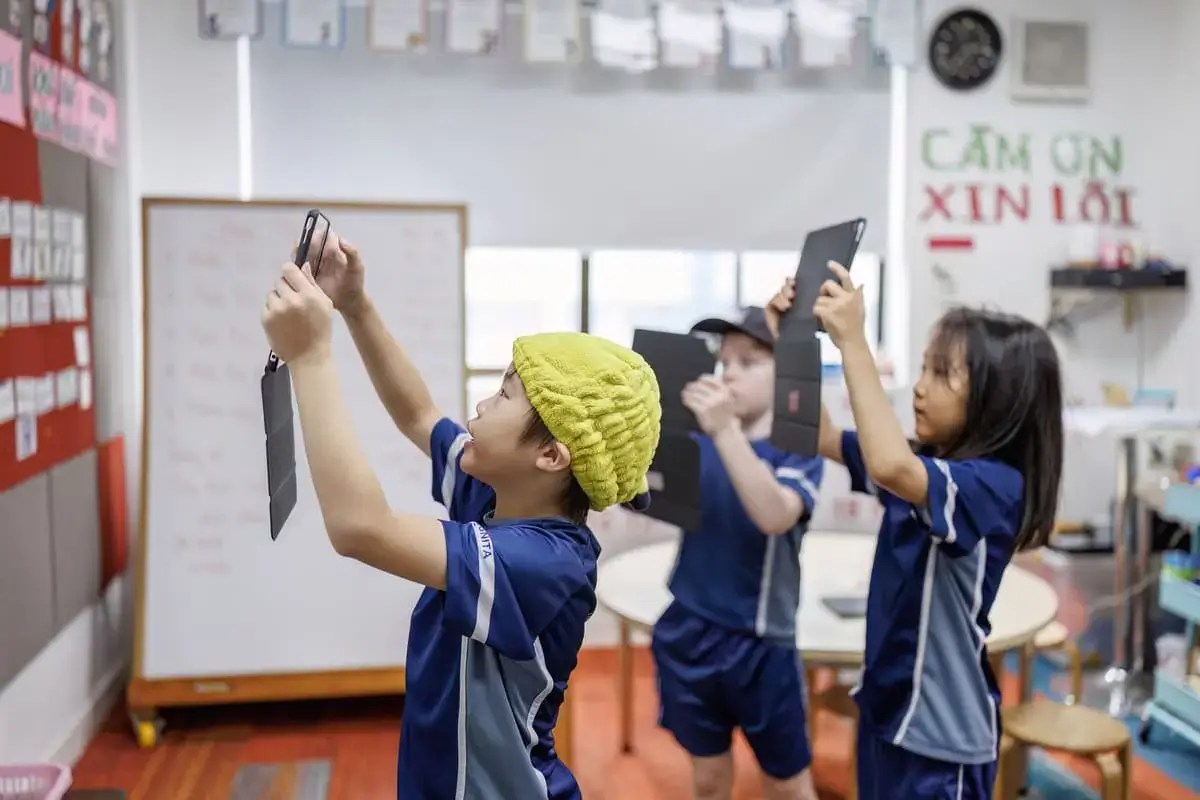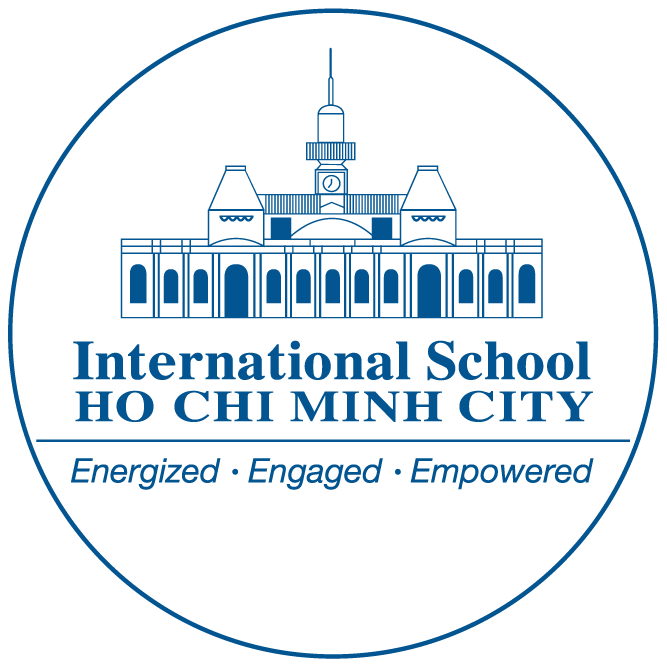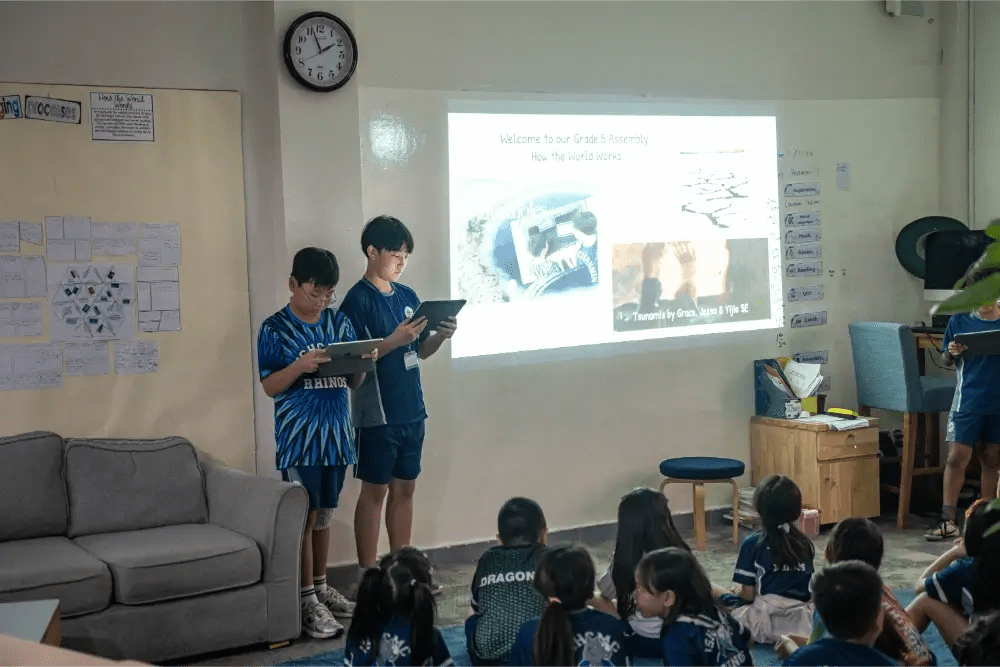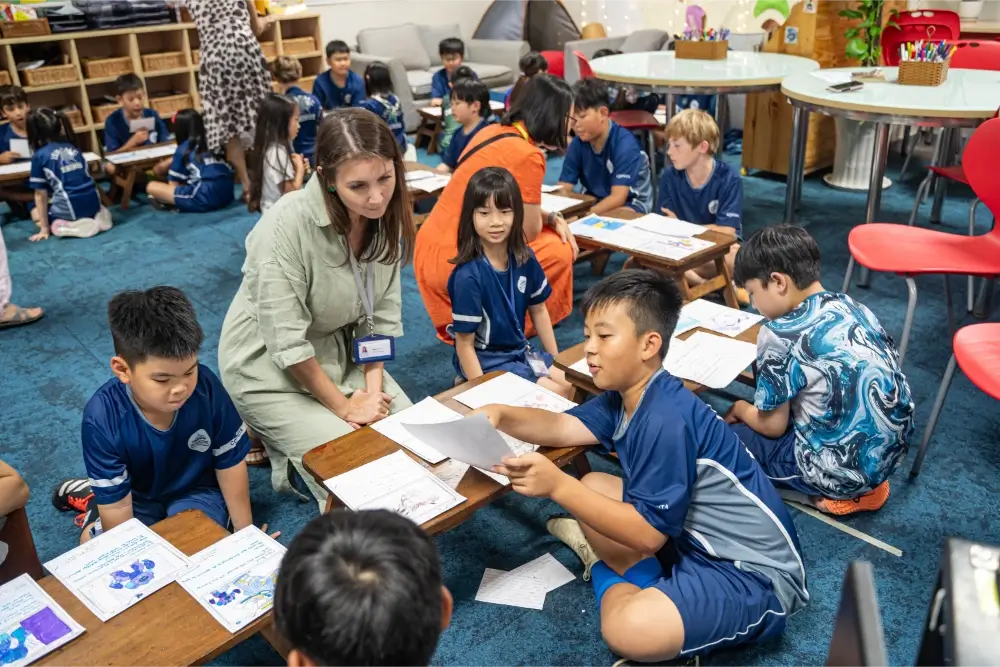Student Agency In IB Schools: Meaning, Impact And Practice
Students today need more than academic knowledge to succeed. They must be able to make decisions, take responsibility for their growth, and adapt with confidence. Student agency becomes essential because it enables students to direct their learning with clarity and purpose. In International Baccalaureate (IB) schools, student agency is a core foundation of the learning experience.
The agency empowers students to become active in their education rather than passive recipients. Through ownership and responsibility, learners develop the motivation, resilience, and adaptability to prepare them for a future defined by constant evolution. This article explores what student agency means in the IB context and how effective schools apply it to develop capable and independent learners.
What Is Student Agency?
Student agency is the capacity of students to act independently and make choices about their learning. It reflects students’ ability to set goals, choose strategies, evaluate outcomes, and take meaningful actions toward learning objectives. In environments that support agency, students view learning as a process they control, rather than something that happens to them.
Within IB schools, student agency is central to how learning is structured. Students lead inquiries, develop personal learning strategies, and engage in reflection that guides academic and personal growth. The IB framework empowers students through self-awareness, active decision making, and a strong sense of purpose. This approach fosters ownership, maturity, and the motivation to seek relevance in every learning experience.
Benefits Of Student Agency For Learning And Life Preparation
When students develop agency, they become better learners and gain the skills needed to navigate the challenges of adult life.
Student agency improves engagement, confidence, and academic persistence. When students participate in decision-making, they approach learning with purpose. They take ownership of deadlines, collaborate more effectively, and remain focused because they see the direct value of their work. Educators can observe higher levels of motivation and an improved ability to overcome setbacks.
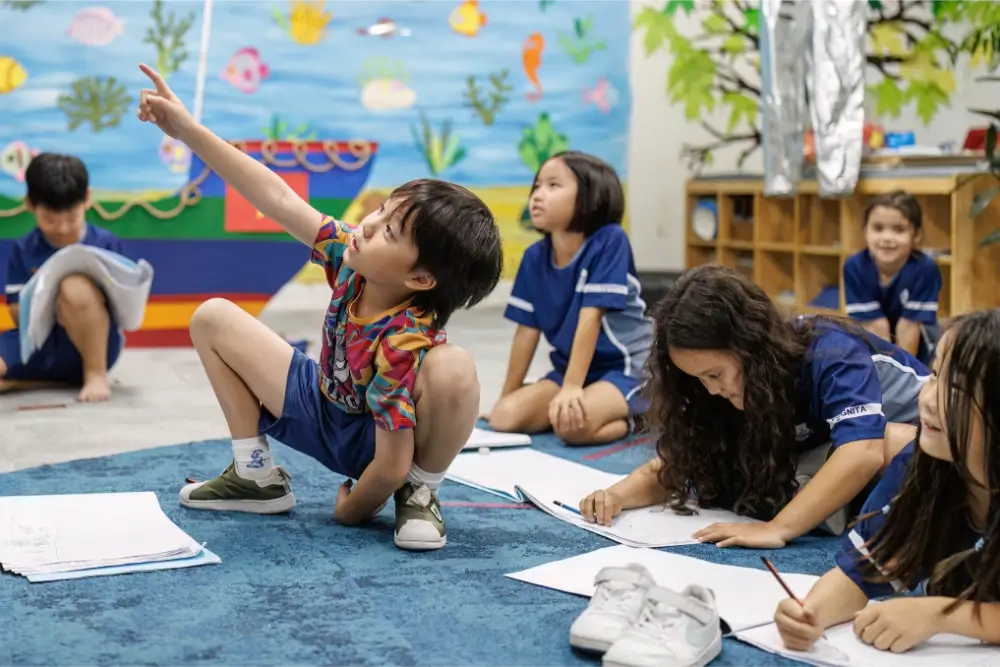
Students who experience agency in school are more prepared for university and professional environments. They demonstrate initiative, manage time effectively, and seek feedback constructively. These traits are especially important in modern careers that require critical thinking, self-direction, and flexibility. Student agency creates independent learners who continue to grow beyond structured education.
Components Of Student Agency
Developing student agency requires attention to several personal and cognitive dimensions. These components build on each other and must be cultivated systematically.
Self-efficacy
Self-efficacy refers to the belief a student has in their ability to complete tasks and reach goals. When students believe their actions lead to results, they take initiative more frequently and engage more deeply in challenges. This belief grows through authentic learning experiences that include goal setting, feedback, and sustained effort.
Schools that foster self-efficacy create learning environments where students take risks and recover from setbacks. Teachers play a key role by helping students recognize their progress and reflect on their growth. The IB structure supports this by encouraging students to participate in complex projects such as the Personal Project in the Middle Years Programme (MYP) and the Extended Essay in the Diploma Programme (DP). These experiences show students they can overcome challenges and achieve meaningful results.
Self-awareness
Self-awareness allows students to understand their strengths, interests, and preferred learning approaches. This awareness is the basis for effective goal setting and reflection. It supports students in identifying what strategies work best for them, how they respond to challenges, and where they want to grow next.
Developing self-awareness involves continuous reflection. In the IB context, this process is structured and guided. Students explore their progress, assess their own work, and receive meaningful feedback. These habits help them identify the connections between their choices and outcomes. As a result, they begin to define learning on their own terms and take responsibility for shaping their academic and personal direction.
Self-regulation
Self-regulation is the ability to manage emotions, behavior, and learning strategies in pursuit of long-term goals. It includes planning, maintaining focus, adjusting to feedback, and persevering through difficulty. Students who master self-regulation become highly independent learners.
This skill must be taught and practiced. IB schools integrate self-regulation into the curriculum through the Approaches to Learning (ATL), which include goal setting, time management, and personal reflection. These strategies are integrated into projects, assessments, and daily classroom practice. Students learn to monitor their work, adapt when they face challenges, and sustain attention across extended tasks. These habits support long-term success across academic and professional settings.
Practices To Promote Student Agency In The Classroom
Developing student agency requires consistent strategies across teaching, assessment, and the learning environment. Well-structured IB schools such as the International School Ho Chi Minh City (ISHCMC) integrate these practices into their core educational philosophy.
Offering Meaningful Choice
Providing students with choices fosters greater engagement and investment in their learning. This approach offers structured choices that align with students’ goals in topic, method, and format selection. At ISHCMC, students regularly choose how to approach inquiry-based projects, explore subjects from multiple perspectives, and take on leadership roles in the classroom.
Emphasizing Inquiry-Based Learning
Inquiry-based learning encourages students to ask questions, explore problems, and discover solutions through investigation. This method promotes curiosity and depth. IB programs rely on inquiry across all levels, and ISHCMC integrates it from Early Years through the DP. Learners at ISHCMC investigate real-world problems, collaborate across subjects, and reflect on outcomes that hold meaning beyond grades.
Guiding Reflection And Goal Setting
Student agency grows when learners take time to reflect. Reflection allows students to evaluate progress, analyze choices, and set clear and achievable goals. Educators at ISHCMC support this process through reflections, digital portfolios, and student-led conferences. These tools help students track progress and plan their next steps.
Structuring The Learning Environment
The physical and social environment plays a significant role in agency. At ISHCMC, classrooms are designed to encourage movement, collaboration, and independent work. Students use flexible spaces to manage tasks, work in groups, and access resources as needed. Teachers act as facilitators, supporting students while allowing them the space to make their own decisions.
How ISHCMC Nurtures Student Agency
ISHCMC creates a culture where student agency is not taught as a concept but experienced as a daily practice. Students develop confidence and ownership through inquiry, reflection, and authentic learning. Personalized pathways enable students to align their education with their goals and strengths. From the Primary Years Programme through to the IB Diploma, learners have access to a curriculum that values initiative, builds resilience, and prepares them for future challenges.
Whether engaging in entrepreneurial projects, community impact initiatives, or arts and technology programs, ISHCMC students take the lead. They graduate as thinkers, collaborators, and confident learners who are equipped to make meaningful contributions in any context.
Apply today at ISHCMC and take the first step toward a future driven by curiosity, capability, and confidence.

